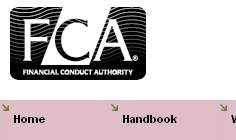
Jonathan Minter speaks to the FCA’s Susan De Mont on the FCA’s views and intentions for the motor finance industry
The birth of the Financial Conduct Authority (FCA) has not been without its hiccups. Whether it was the time frame given by the FCA, a lack of communication or education coming from it, or simply the sheer quantity of the new regulation, market players of all shapes and sizes have struggled coming to terms with the new regulatory reality. Today a number of companies are going through the full authorisation process. However some questions still persist, notably for smaller intermediaries which are still intimidated by the sheer scale of the regulation they need to take on board. To help answer questions and assuage fears FCA director of credit authorisations, Susan De Mont, gives Motor Finance a rundown of the FCAs view of the motor finance industry.
What’s the FCA’s general view of the motor finance industry?
The motor finance industry is key to ensuring thousands of customers can purchase motor vehicles affordably. We recognise that having a personal means of transport is important to individuals, whether for business or personal use, and that for many, buying a car will be one of the most significant purchases they make. It’s therefore important that finance providers and brokers recognise the significance of the impact they have on peoples’ lives in arranging or providing finance.
The FCA’s remit covers a wide range of industries and professions,and have so far really focused on payday lenders and debt advisors. When I speak to people in the industry, a common question is ‘when is it our turn?’ – could you give a timescale of your plans for the motor finance industry?
It’s worth saying that all firms which apply for authorisation will have to meet our threshold conditions. So in that sense we will apply that level of scrutiny to each sector when their turn comes to be authorised. Naturally, we will put a greater level of scrutiny and resources to full permission, rather than limited permission forms, but ultimately if we see evidence that firms cannot treat customers fairly, or cannot be supervisable in the UK then they will not be authorised.
How well do you really know your competitors?
Access the most comprehensive Company Profiles on the market, powered by GlobalData. Save hours of research. Gain competitive edge.

Thank you!
Your download email will arrive shortly
Not ready to buy yet? Download a free sample
We are confident about the unique quality of our Company Profiles. However, we want you to make the most beneficial decision for your business, so we offer a free sample that you can download by submitting the below form
By GlobalDataNow it’s true we have prioritised certain sectors above others, and we can see that in the timing of our application periods (debt management first, followed by high cost short term (HCST), or payday, but all firms will face that level of scrutiny in the authorisation process when they apply. I’d like to add that motor dealers’ application periods will vary depending on a number of factors. Their application periods are spread right across the next 18 months. It is worth saying that we will write to each firm telling them the exact time they need to apply and what they need to do to get ready.
Turning now to our supervision work, so far we have focused on HCST and debt management, but we’re looking at all sectors, including credit broking from car dealers. We will devote our resources to those areas we think require the greatest scrutiny and this of course potentially includes credit broking from the motor dealers should the evidence lead us that way.
Given the fear of players leaving the market, or at least a level of consolidation in the market, how are you squaring this with creating more competition?
We recognise that some lenders and intermediaries will decide to leave the market, but new entrants will join and others will merge. We want to see firms competing on a level playing field on factors such as appropriate affordability standards, innovation and high levels of customer service. Our competition mandate is not to create competition for competition’s sake – it’s to ensure competition works effectively for consumers and that involves minimum standards of behaviour that we are committed to ensuring firms meet.
What are your priorities for the motor finance industry?
We recognise firms are in business to make money. However, we look to ensure that they are doing so while delivering positive customer outcomes. We want to ensure that firms offer customers finance options that are both affordable and sustainable in meeting their customers’ needs and circumstances, that the different options are clearly explained, and that they are given information that’s needed in a way that enables customers to make the right choices. And there are benefits for firms – if a firm has its customers’ interests in mind, those customers will become loyal and recommend it to others.
Could you give some examples of how working with industry people and bodies has influenced the FCA?
It’s important for us to build and maintain our knowledge of the 15 subsectors we use to categorise consumer credit activity. One way we can achieve this is through our ongoing engagement with trade bodies and associations which helps to inform our work. We’ve developed a good relationship with the trade bodies, including the FLA with senior FCA staff from authorisations and supervision having spoken at conferences and engaged directly with firms’ concerns and questions at events. We’ve benefited from this engagement by being able to understand firms’ concerns better, including the problems they have encountered with the application process. We’re also finding that trade bodies like the FLA can play an important role in getting key messages out to its members and in guiding them as they prepare for their application period.
Could you give some final thoughts about what message you’d like to give to the motor finance industry?
Yes, I’d say my top tips for authorisation are:
-?Know when you need to apply – if you don’t apply during your application period, your interim permission will lapse and you will have to stop doing credit business. Ensure you know your application period and work backwards;
-?Don’t leave it to the last minute to apply – our online application form allows you to start your application early and save it for later completion – so you can start ahead of the application period if you are ready;
-?You should be open and transparent with the FCA as honesty is a key factor in our assessment of integrity;
-?Remember the more complete an application, the quicker we can make a determination;
-?We have a range of tools available on our website to help you, along with our Customer Contact Centre staff who you can answer your questions on the phone;
-?Finally, we will also be running webinar events ahead of firms’ application periods which are aimed at the types of firms we’re expecting to apply within a particular period. The information given at these events will be useful to all finance providers including those in the motor finance sector. Firms will also have the opportunity to ask questions relevant to their own businesses at these events.
Taking a step back for a moment, by April 2016, all the consumer credit application periods will be finished and all firms that want to continue in business must have applied for full authorisation. It’s likely the credit landscape will look different from how it does today. Some lenders and intermediaries will decide to leave the market, new entrants will join and others will merge. We’re already seeing this change occurring. We’re not looking to clamp down on or single out particular industries. What we’re concerned about is unaffordable lending and unfair treatments of customers who are in financial difficulties. We want to raise standards in the credit industry by making sure there is a culture among firms of ‘doing the right thing’ for customers at every stage in the process. This is a new market for the FCA and a new regime for many of the firms in it. However, our overall objective is the same for all areas we regulate: ensuring the best possible outcomes for consumers.
Industry reaction: The National Association of Commercial Finance Brokers
The FCA is trying to do a difficult job and it’s not surprising there’s still a little bit of confusion about what will fall into the regulated and unregulated categories.
How the FCA is going to treat the motor finance industry is of particular interest to the NACFB, because our members report a huge expansion in business over the past 12 months. We’ve seen 50% growth in the total amount of motor vehicle finance done by our brokers, from £400m to over £800m. We could even be hailing our motor vehicle finance brokers as being a £1bn success story this time next year – that’s assuming, of course, that the FCA’s fears of some lenders and intermediaries deciding to leave the market are held in check.
The average deal size is holding steady at about £21,600, so the difference between this year and last year is all down to more deals being done. Perhaps this is what you would expect – the vehicles themselves aren’t costing more, but a larger number of businesses are making these pivotal investments.
That’s the good news. The bad news is that if you’re expecting one call to the FCA’s Customer Contact Centre to answer all your questions, then based on our experience you might be disappointed. The specifics of each broker’s past and future business are so various that the FCA cannot be expected to clear everything up for each broker in a single phone call.
We’re in full agreement with the FCA that brokers should not be waiting until the start of their specified application periods before making a start on understanding the regulations. Getting an early heads-up on the exact type of changes you’ll need to make can’t do any harm.
Our members share the FCA’s concerns about conduct. Transparency and fair outcomes are in everyone’s interests. It’s simply a question of how clearly the finer points of regulation are being communicated to the industry. When the FCA says they are "making sure that there is a culture of doing the right thing for customers at every stage", we say that we’ve always had that as our aim too.
What we’re doing to help fill in the gaps in understanding is to invite FCA representatives along to the events we run, and to allow them to hear the sort of questions our members are asking. And while these FCA representatives are brave enough to stand up at the front and take questions, then we’ll be happy to stand beside them.
Adam Tyler is chief executive officer at the NACFB
Industry reaction: The NFDA
The National Franchised Dealers Association (NFDA) is pleased the FCA recognises the significance of motor finance to consumers, and its importance in enabling them to buy a car. Also the fact that it acknowledges consumers needs to own a vehicle for getting around for work or pleasure.
It’s inevitable the FCA will be interested in the motor finance sector as it makes up a significant part of the consumer credit market. It’s therefore important that motor dealers embrace the current changes to regulation and continue to ensure they meet the FCA’s expectations of firms. Dealers who do embrace the changes and ensure their processes and selling practices are compliant will see benefits to their business.
Compliance is not just about red tape; it also drives improvements into business and ensures customers are treated fairly. Compliance will mean better informed customers, and it will also help develop the relationship between the dealer and customer that builds trust and loyalty. This in turn will lead to customers coming back to the dealership to buy more vehicles as well as using the dealership for services and other facilities.
The motor finance sector will change over the next two years. Dealers will generally ensure they can still provide finance, because without it they will not be able to sell cars.
Most dealers will apply directly to the FCA for authorisation. In most cases this will be for limited permission, which will for many dealers reduce the cost and complexity of authorisation. However, a number of dealers will have to hold full authorisation as they are already authorised with the FCA for general insurance.
We know a number of dealers are looking for alternatives. Many walked away from having FCA authorisation for general insurance over the past few years and are not keen to go back to the FCA for consumer credit. These dealers may well look to become appointed representatives in a network in a similar manner to the way they now handle their insurance authorisation. The NFDA’s message to dealers is ‘Don’t panic and be prepared."
Louise Wallis is head of business development, NFDA
Industry reaction: Ascent Performance Group
We welcome the FCA’s ever-increasing involvement as this will ensure that customers are appropriately advised and protected around all aspects of motor finance. It’s also worth pointing out that the reason the automotive sector is so buoyant is because of the provision of flexible motor finance deals, which we hope the FCA continues to support.
It makes perfect sense to increase threshold criteria for any firm, whether a payday lender or motor finance provider, before granting full authorisations. As the financial industry by its nature regularly encounters people in vulnerable financial situations it’s imperative for the regulator to check carefully that customers are being treated fairly at all times and stages of a motor finance transaction. As a business on the frontline of customer contact, we welcome the break from the past and the FCA’s closer scrutiny.
We agree with this sentiment and are not unduly concerned by a reduction of competition in the market as there’s unlikely to be any lack of competition going forward. A tighter industry may also improve customer outcomes which take precedence above all else.
Delivering positive customer outcomes must now be a central tenet to all companies’ business plans. We’re in full agreement with the FCA on the need to achieve in the motor finance sector sustainable products that match customers’ needs. To add to this, if customers do fall into financial difficulties then focusing on successful rehabilitation and enabling them to keep their vehicle should increase customer loyalty for lenders.
It’s evident that the FCA is fully engaged with industry trade bodies, but beyond this they are in constructive dialogue with stakeholders such as ourselves throughout the sector. This wide-reaching liaison will give the FCA a holistic understanding of the motor finance sector and enable it to pinpoint and improve standards where necessary.
The FCA’s focus on improving customer service standards is a welcome approach.
Mark Higgins is chairman of Ascent Performance Group
Industry reaction: Credit 4 Cars
Somewhat predictably the FCA makes reference to motor finance having to be affordable. No surprises there, but it’s encouraging to see the regulator acknowledging just how important the industry is in terms of enabling people to access personal transport. From a subprime perspective, we believe this privilege should also extend to people who have had credit problems in the past. I think the message here is that, for motor dealers and finance companies alike, there’s no room for complacency.
Closely following the affordability point is the FCA’s reference to treating customers fairly. This has long been an important principle with the regulator. We shouldn’t need to be told how to treat customers, but in a sense the financial services industry as a whole brought this upon itself, or certain elements did, by focussing on sales and profits alone without considering the customers’ best interests. There were just too many examples of mis-selling for the regulator to sit on its hands, albeit it could be argued that these were in the minority given the plethora of financial transactions. But add to this the emergence of misleading and confusing promotions, excessive charges being levied and complaints not being properly investigated then, for the regulator, enough was enough. In this respect it’s important that we all take on board the founding principle of the TCF initiative and also the six consumer outcomes the FCA expects. I’m sure we’ll hear a lot more about this from the FCA as the process of full authorisation rolls on, but for those not familiar with the content it’s important to check out the FCA’s website for more information.
I’m not sure what to make of the answer which alludes to a level playing field on factors such as affordability. I’ve worked for a number of different financial services organisations and no two businesses have assessed affordability in the same way. I hope the FCA doesn’t create similar confusion in the motor finance industry as it seems to have done in the mortgage market where some lenders have gone over the top in terms of information required from the customer for fear of falling foul of the rules. As Credit 4 Cars serve non-conforming customers we make no apology for scrutinising affordability very carefully, but our requirements may not be applicable across the board.
In wanting to raise standards in the credit industry it’s implicit that the FCA doesn’t believe that standards are high enough today. Of course standards can always be improved, but the FCA must be careful of pre-judgement. I’d like to think that the vast majority of motor dealers and finance providers will surprise the FCA in terms of evidencing standards which will demonstrate a higher level of customer care than perhaps the FCA expects.
John Webster is a director at Credit 4 Cars







